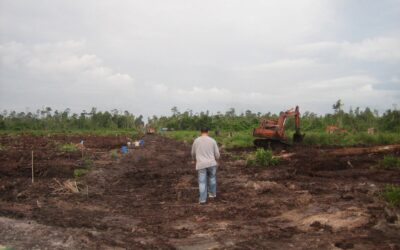Although the demise of coal can justifiably be blamed on the shift in government support to the nuclear industry, in truth the main challenge it faced was from petroleum. Initially, Scotland’s oil industry was also based on mining. Its geographical centre was just to the west of Edinburgh, not far from where the airport can now be found.




Blog
Energy: Scotland’s Forgotten Industrial Heritage? Part 1
These days, despite the constant stream of publicity highlighting the climate emergency, many of us still drift into a lifestyle driven by uncritical, passive mass energy consumption. It’s too easy to casually switch on devices without any consideration of how the energy that powers them has been derived. Yet, all strands of our energy industry have a fascinating history and associated culture, some of which has been truly heroic and, needless to say, also often troubling in nature.
Oil, Oil, Who Wants Some Oil? Part 5: Betting on the Future
by Sean Field and Mette M. High
In May 2020, the two main financial regulators in the United States (the SEC and CFTC) launched investigations into the multi-billion-dollar US Oil Fund (USO). Over the last decade, USO has attracted huge numbers of private household investors eager to invest in oil. Its shares are easily bought and sold on internet trading platforms and the share price closely tracks movements in the spot price of the West Texas Intermediate (WTI) crude oil benchmark. But USO has been a volatile investment proposition.
Understanding Energy: Reclaiming the air through sustainable aviation
Flying is a convenient mode of transport, but it is also a major contributor to carbon dioxide emissions. The question is, how could we make airplanes run on renewable energy? By considering the basic physics of the problem, in particular the concepts of energy density and combustion, we see what makes jet fuel such a brilliant fuel energy-wise, why batteries are not a likely alternative, and why hydrogen might be the key to sustainable aviation.
Making Energy. Part 1: A Conversation with Solar-Tech CEO Paul Cheng of Plus Renewables
by Anna Seeger
What energy solutions are there for individuals and households who have a steady supply of non-renewable electricity, but would instead like to have a more cost efficient, more energy efficient and more climate and environmentally conscious energy system? In this blog post, I discuss small-scale energy production with Paul Cheng, CEO of Plus Renewables, a company that manages and develops solar and wind projects around the globe.
Oil, Oil, Who Wants Some Oil? Part 4: The Brent Crude Complex
by Sean Field and Mette M. High
When West Texas Intermediate (WTI) crude oil plummeted to a closing price of –US $37.63 on 20 April 2020, the spot price of Brent crude oil only fell to US $17.36. This striking price difference between these two rival crude oil benchmarks highlights important dynamics that pertain to not only the supply and demand of oil, but also the social construction of futures markets.
Energy for whom? Energy for what? Envisioning alternative energy transitions in Mexico
In Mexico, the energy transition is the subject of an increasingly heated debate. Despite the president’s vow to de-privatise the energy industry and foster renewables, grassroots activists are questioning the government’s new course; they deem its energy policies as unjust and unequal, aimed at favouring the economic interests of private companies instead of addressing the needs of the people, and claim for alternative energy transitions.
Is it really renewable, for peat’s sake?
During the ‘Energy Debate’ panel hosted on Friday 13 November as part of Energy Ethics 2020, it became clear that the challenges of powering the world on renewable technologies were as palpable as the need to overcome them in order to reduce our reliance on fossil fuels; and reducing this reliance is imperative if we are to limit the impacts of ongoing climate change.
The Work of Activism
Supporters and opponents of fossil fuel infrastructures offer different visions of an energy transition – and different insights into what they consider meaningful and desirable work. In this post, I reflect on such concerns around work and employment in the context of resistance to the shale gas industry in the north of England.
The Comeback of the Plastic Straw: Are we sacrificing sustainability in the face of COVID-19 safety?
by Anna Seeger
Whilst the COVID-19 pandemic initially led to a drop in global CO2 emissions, post-lockdown emissions are reported to be back in line with their previous trajectories. Along with this resurgence of carbon emissions, I am observing an increasing use of single-use plastics and other environmentally unsustainable practises. How do coronavirus measures, whether we agree with them or not, affect our sustainability efforts?









